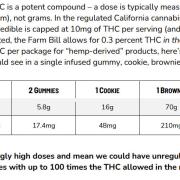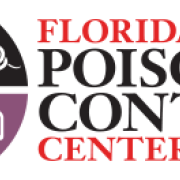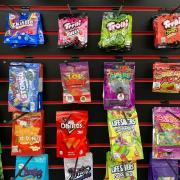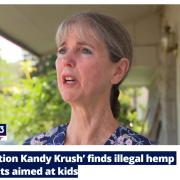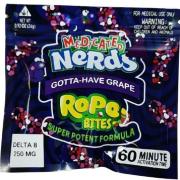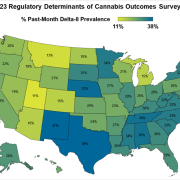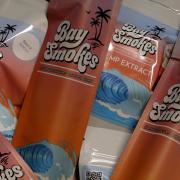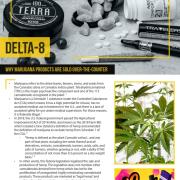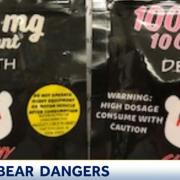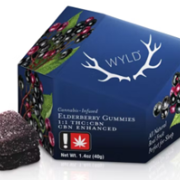Community Flyer- Print and share in schools, churches, rec centers...

2024 Proposed Legislation:

READ Sherif Grady Judd's letter of support.
Link to complete testimony at Senate Committee meeting-
"Numerous vape shops and gas stations are failing to comply with last year's statutes. In my neighborhood, teens crowded sidewalks on game nights this fall to obtain their 'candy’. During a sting by the Agriculture Commissioner last summer, illegal products were found throughout out state even in Polk County shops. I would think, the fear of being featured in one of Grady Judd's press conferences would be a strong deterrent against selling these drugs."
A 12-year-old girl was sent to the hospital after she ate what she told FOX 13 she thought was a piece of candy given to her by another student.
The seventh grader, Amanda, said at one point, she thought she was going to die. Her parents said she suffered a severe allergic reaction and couldn't breathe.
Her mom, Marianne, said she spent several hours in the hospital on Wednesday, but she is now doing okay. She said she simply wants to know how these gummies got in the hands of kids.
"I told my teacher 'Oh I'm feeling dizzy,' [and] then I started seeing everything going, side-to-side," Amanda said.
What is Delta-8 ?
A) A sorority
B) An airline
C) A highly toxic, unsafe, unregulated, non FDA approved THC infused product
THE ANSWER IS 'C'
Delta-8 THC and other hemp-derived psychoactive products are addictive and harmful to the brain. There is no federal age limit for buying Delta-8 THC, so these products are being sold to kids nationwide with easy access in gas stations, convenience stores and online.
-
Unregulated has given way to no caps THC level ... most products have a much higher level of THC than any 'medical' or recreational marijuana products.
-
Side-effects are not listed on packaging- delayed effects can often take 30-60 minutes, include but not limited to... hallucinations, vomiting, tremor, anxiety, dizziness, confusion, and loss of consciousness. (See below for more information)
-
Often 1 piece is equal to 5-10 servings.
(LINK TO FLYER containing information below)
Delta-8 THC: Exposing the Truth – “Disguised as Everyday Products, Concealing the Risks”
What is Delta-8 THC? A psychoactive substance that can have profound effects on both the mind and body. Its consumption can lead to altered perception, impairment of cognitive and motor functions, and in some cases, even anxiety and paranoia. Individuals often report using Delta-8 for self-medication purposes, for various conditions while avoiding medical advice. Delta-8 products are widely available in gas stations and convenience stores across Florida. While some states have chosen to ban this substance in 2023, Florida legislators opted to legitimize the Federal Farm Bill loophole, legalizing Delta-8 with unrestricted potency. However, certain restrictions were imposed, such as limiting sales to individuals aged 21 and older, and prohibiting marketing directed towards children.
What type of products contain Delta-8 THC? Vape Cartridges (filled with oil) can be used with compatible vape pens and vaporizers, Edibles (cookies, candies, beverages, gummies) Tinctures (liquid extracts placed under the tongue or added to foods (Capsules (oil or extracts swallowed) Concentrates (oil, wax, shatter- using specialized equipment), Topicals (cream, lotions) Flower (smoked or vaped) Pre-rolls (joints or blunts)
Is Delta-8 THC stronger than recreational or medical marijuana (Delta-9)? While Delta-8 is frequently marketed as a legal and milder alternative to Delta-9, it is essential to recognize that the potency of synthetic Delta-8 products can often be extremely high. When comparing the strength of marijuana and delta-8 THC products, it's crucial to focus on potency rather than the specific product. The higher the ratio of THC, the more potent the product becomes, leading to greater impairment for individuals. Back in the 1970s, the average potency of marijuana was around 10mg. Today potency levels range from 60-100 mg or even higher 1000mg for some Delta-8 products.
Top 12 Facts to consider before consuming, promoting or legalizing Delta-8 THC
-
Health risks: Delta-Delta-8 usage carries significant health risks, including addiction potential, mental health implications, cognitive impairments, and potential respiratory issues. Long-term use of delta-8 has not been studied extensively, and there may be unknown risks associated with its use.
-
Lack of regulation: Currently, delta-8 is not regulated by the federal government, and there are no standards for purity or potency. This lack of regulation poses concerns as unscrupulous manufacturers may produce contaminated or unsafe products. However, it is important to acknowledge that even with regulation, counterfeit and illegal products can resemble legal ones. In addition, as with legalization of marijuana in some states the black market will thrive.
-
Addiction potential: Delta-8 is a cannabinoid, and like other cannabinoids, it may be addictive. Legalizing delta-8 could lead to increased use and addiction rates, especially among young people.
-
Impaired driving: Delta-8 can impair driving ability, and there are currently no reliable tests for detecting delta-8 impairment. Legalizing delta-8 could increase the risk of impaired driving accidents.
-
Workplace safety: Legalizing delta-8 could create challenges for employers who need to maintain a safe workplace. Employees who use delta-8 could be impaired at work, which could increase the risk of accidents or injuries.
-
Mental health concerns: Delta-8 has been shown to have psychotropic effects, and it may exacerbate or trigger mental health issues, such as anxiety and depression.
One study published in 2019 examined suicide deaths in Colorado from 2014 to 2017 and found that 25% of the cases had detectable levels of THC in their system. Another study conducted in Washington State from 2014 to 2016 found that 12.2% of suicide deaths involved THC.
-
Potential for abuse: Legalizing delta-8 could make it easier for people to abuse the substance. Individuals who struggle with addiction or have a history of substance abuse may be more likely to abuse delta-8 if it is legal and easily accessible.
-
Undermines public health efforts: Legalizing delta-8 could undermine public health efforts to combat substance abuse and addiction. It sends a message that using psychoactive substances is acceptable and could lead to increased use of other drugs.
-
Social and economic costs: Legalizing delta-8 could lead to increased healthcare costs, lost productivity, and other social and economic costs associated with substance abuse.
-
Legal complexity: The legal status of delta-8 is currently unclear and legalizing it could create additional legal complexity and challenges for law enforcement and regulators.
-
Point of Sale: These products should never be sold in gas stations and convenience stores as they may not provide adequate education or guidance to consumers regarding the potential risks, proper usage, or potential interactions with other medications. Properly trained professionals should be involved in the sale and distribution of delta-8 products to ensure consumer safety.
-
Consumers/Users: Most people who use this drug are self-medicating instead of seeking the much-needed medical help they may require. This practice can lead to inadequate treatment of underlying mental health conditions and may contribute to worsening symptoms or additional mental health issues, potentially even increasing the risk of suicide deaths. It is crucial to encourage individuals to consult with healthcare professionals to address their mental health concerns appropriately.
Now, considering Delta-8 THC: Do You Believe it is Safe, Benign,
Justifiable for Medicinal Purposes, or Benefits our Communities?
More Information: rethinkpot.org/Delta-8
Delta-8 THC – Mental & Physical Side Effects:
It's important to note that individual experiences may differ, and the intensity and prevalence of these effects can vary based on factors such as dosage, individual tolerance, and the presence of other substances or medications in the body. Additionally, long-term effects and potential risks associated with sustained or heavy Delta-8 use are still not well understood due to limited research. However, based on our current knowledge, here are some potential short-term mental and physical risks associated with using Delta-8:
Mental Side Effects:
-
Psychoactive effects: Delta-8 can cause intoxicating effects similar to Delta-9, including euphoria, relaxation, altered perception of time, and changes in mood. These psychoactive effects can impair judgment, coordination, and cognitive function.
-
Altered perception: Delta-8 can cause changes in perception, including distortions in sensory experiences and perception of time.
-
Anxiety and paranoia: Delta-8 THC, like Delta-9 THC, can potentially trigger anxiety, paranoia and psychosis, particularly in individuals who are susceptible to these effects. Some users may experience increased heart rate, racing thoughts, and feelings of unease or restlessness.
-
Mood changes: Delta-8 can potentially impact mood, leading to fluctuations in emotions and affect.
-
Impaired cognitive function: Delta-8 can affect cognitive abilities such as memory, attention, judgment and decision-making. Short-term memory recall may be impaired while under the influence of Delta-8. It may result in difficulties with concentration, memory, and overall cognitive function.
Physical Side Effects:
-
Sedation and drowsiness: Delta-8 may induce feelings of sedation and drowsiness, which can impact alertness and reaction times. Operating machinery or driving while under the influence of Delta-8 can be dangerous.
-
Dry mouth and red eyes: Similar to Delta-9 THC, Delta-8 THC may cause dryness of the mouth and redness of the eyes. These effects are often referred to as "cottonmouth" and "red eye" and are considered common side effects of cannabis use.
-
Increased heart rate and blood pressure: Delta-8 may cause temporary increases in heart rate and blood pressure. This can be a concern for individuals with pre-existing cardiovascular conditions.
-
Gastrointestinal discomfort: Some users have reported experiencing digestive issues such as nausea, vomiting, and diarrhea after using Delta-8. However, the incidence and severity of these side effects can vary among individuals.
-
Coordination difficulties: It may impair motor skills and coordination, leading to clumsiness or lack of balance.
Cannabis-induced psychosis: Long-term use of cannabis products, including Delta-8 has been associated with potential mental & physical risks, but also includes the often life-altering development of cannabis-induced psychosis and schizophrenia:
-
Cannabis-induced psychosis: Prolonged and heavy cannabis use has been linked to an increased risk of developing psychosis, which is a mental health condition characterized by a loss of touch with reality- characterized by hallucinations, delusions, and disorganized thinking. Cannabis-induced psychosis refers to psychotic episodes triggered or exacerbated by cannabis use.
-
Vulnerability factors: While not everyone who uses cannabis will develop psychosis, certain factors can increase susceptibility. These factors include a personal or family history of psychosis, genetic predisposition, early and frequent cannabis use, high-potency cannabis products, and certain environmental factors.
-
Symptoms: Cannabis-induced psychosis can present with symptoms such as hallucinations, delusions, paranoia, disorganized thinking, impaired cognitive function, and changes in mood and behavior.
-
Duration of use: The risk of developing cannabis-induced psychosis is generally associated with long-term, heavy use. Young age, frequency, dosage, and potency of cannabis consumed can influence the likelihood of experiencing psychotic symptoms.
-
Individual variability: Not everyone who uses cannabis will develop psychosis, and the relationship between cannabis use and psychosis is complex. Individual susceptibility varies, and other factors such as mental health history and co-occurring substance use can also contribute to the development of psychosis.
-
Early intervention and treatment: If cannabis-induced psychosis occurs, early identification and intervention are crucial. Treatment options may include stopping all use of cannabis, medication, psychotherapy, and support services to address symptoms and underlying mental health conditions.
If you suffer adverse effects, call a doctor, your local poison center or 911!
Is Delta-8 truly safe, benign, suitable for medicinal use, or worthy of legalization?
More Information: rethinkpot.org/Delta-8
MIXING MEDICATIONS with Cannibis products:
Potential Drug Interactions: Cannabis products can interact with medications, affecting their metabolism or effectiveness. This can result in reduced effectiveness or increased concentrations of the medication in the body, potentially leading to adverse effects or unexpected responses.
Here are some general considerations:
Increased Sedation: Combining cannabis products with medications that have sedative effects, such as benzodiazepines or opioids, may intensify the sedative properties and result in excessive drowsiness, impaired coordination, and difficulty concentrating.
Changes in Blood Pressure: Cannabis can cause changes in blood pressure, both increases and decreases. Mixing cannabis with medications that also affect blood pressure, such as antihypertensive medications, may lead to unpredictable and potentially harmful fluctuations in blood pressure.
Enhanced Central Nervous System (CNS) Depression: Cannabis products, especially when used in combination with medications that have CNS depressant effects like certain antidepressants or antipsychotics, may amplify the depressant properties of these medications, leading to increased sedation, respiratory depression, and reduced cognitive function.
Impaired Cognitive Function: Cannabis can impair cognitive function, including memory, attention, and concentration. Mixing cannabis with medications that also have cognitive side effects, such as certain antiepileptic drugs or muscle relaxants, may intensify cognitive impairment.
Increased Heart Rate: Cannabis use can cause an increase in heart rate. Combining cannabis products with medications that have similar effects, such as stimulants or certain cardiovascular medications, may further elevate heart rate and potentially lead to cardiovascular complications.
Potential Drug Interactions: Cannabis products can interact with certain medications in the body, affecting how the medications are metabolized or their overall effectiveness. This can result in either reduced effectiveness or increased concentrations of the medication in the body, potentially leading to adverse effects or unexpected responses.
It is important to consult with a healthcare professional or pharmacist to discuss potential interactions between cannabis products and specific medications. They can provide personalized advice based on your medical history, prescribed medications, and individual needs.

Why did the Delta-8 Industry choose to move to Florida?
A) The weather
B) Small busniess opporunties
C) Lack of regulations
THE ANSWER IS 'C'.
Florida currently has an open door policy when it comes to Delta-8.
This industry is anything but family friendly. It is preying on our children and young adults marketing extremely high potency THC infused products in packages that mimic national brand candies (and other products) such as Skittles, Nerds, Fruit loops... Is this the industry we want in our state?
Why did the Delta-8 Industry leave California, Oregon, Colorado, Alaska.....to come to Florida?
-
2023 Delt-8 THC Legal Status (click on map for more information)
-
Oregon the first state to ban all artificially derived cannabinoids.
-
Alaska - doesn’t permit the use, possession, sale, distribution, or production of delta-8 and classifies it as a Schedule IIIA controlled substance under state law. Schedule IIIA includes all tetrahydrocannabinols such as delta-10 and THC-O. Possession of delta-8 ranges from a Class C misdemeanor to a felony, depending on quantity and intent.
-
Colorado - delta-8 is not legal in Colorado despite very relaxed medical and recreational marijuana laws. The state does not permit the use, possession, sale, distribution, and production of delta-8 products following a notice from the Colorado Department of Health & Environment (CDPHE). The notice states, “chemically modifying or converting any naturally occurring cannabinoids from industrial hemp is non-compliant with the statutory definition of ‘industrial hemp product’”
-
California- you cannot cross the state borders with delta-8 THC products unless they carry below 0.3% THC. The state restricts and regulates all unlicensed delta-8 products above the 0.3% combined THC concentration. Jan 5 2023) Even California has banned this product: "PANDORA’S BOX The Dangers of a National, Unregulated, Hemp-Derived Intoxicating Cannabinoid Market", "The notion of legalizing intoxicating cannabinoids simply because they are derived or synthesized from hemp is ludicrous. A comparable scenario would be deregulating wine on the grounds that it derives from grape juice. An intoxicant is an intoxicant. Both common sense and public safety dictate that these substances must be handled with care. The proliferation of untested and unregulated synthetic and semi-synthetic intoxicating cannabinoids is a public health disaster."
-
Idaho is renowned for having the toughest hemp laws in the country. No hemp-derived product can carry any percentage of THC or its isomers, as outlined under House Bill 126 and in the Idaho Uniform Controlled Substances Act
-
New York - Delta-8 is illegal in New York. The sale, distribution, and production of delta-8 products are banned in the state following an announcement from the New York Cannabis Control Board (CCB), citing a lack of safety and improper mislabeling.
-
West Virginia SB 220 creates the Hemp-derived Cannabinoid Regulation Act, regulating the selling of naturally produced hemp products, such as Delta 8 and Delta 10 products, and outlaws synthetic hemp products. One of strongest regulatory schemes in the country: permitting only naturally occurring (not synthesized) products; making all others “contraband”; providing enhanced regulatory authority, instituting an age limit; providing marketing restrictions; providing a funding scheme to support both enforcement and prevention.
-
Maryland Current Products including CBD teas, gummies and rubs could soon be illegal if a new Maryland recreational cannabis bill, SB 516, is signed into law. These products would have to lower the amount of THC per package to below 2.5 milligrams. "The Governor has made cracking down on dangerous THC intoxicants, including those synthesized from hemp, a priority to protect public safety. The conference report for HB2294 and SB903 does that. The governor looks forward to the enhanced enforcement this will bring to keep dangerous intoxicants off the shelves and away from Virginia children.”
-
2023 Delta-8-THC Fact Sheet PDF Format
Public Concerns: Intoxicating Cannabinoids Synthesized from Hemp

Little is known about the short-term or long-term health effects of synthetic hemp cannabinoids. The FDA provided an educational web page about delta-8-THC updated in May 2022, entitled “5 Things to Know about Delta-8 Tetrahydrocannabinol – Delta-8-THC”.
-
Delta-8 products have not been evaluated or approved by the FDA. The FDA is concerned about the marketing of intoxicating hemp products towards children, a surge in child poisoning cases and adverse event reports of hallucinations, vomiting, tremor, anxiety, dizziness, confusion, and loss of consciousness.
-
National poison control centers received 2,362 exposure cases of delta-8-THC products between January 1, 2021, and February 28, 2022. 40% involved unintentional exposure to delta-8-THC and 82% of these unintentional exposures affected pediatric patients. 70% required health care facility evaluation, of which 8% resulted in admission to a critical care unit. One pediatric case was coded with a medical outcome of death. (4)
-
Florida Poison Centers reported 197 delta-8-THC exposures in 2021. Delta-8 exposures in Florida surged to 291 in 2022, an alarming 48% increase. (5)
Why is it legal? Federal Farm Bill Loophole
 While cannabis and its derivatives remain federally illegal, loopholes in the federal definition of hemp in the 2018 Agricultural Improvement Act “Farm Bill” are being exploited by the hemp industry to sell unregulated, highly intoxicating cannabinoid products without regard for public health and safety. (1)
While cannabis and its derivatives remain federally illegal, loopholes in the federal definition of hemp in the 2018 Agricultural Improvement Act “Farm Bill” are being exploited by the hemp industry to sell unregulated, highly intoxicating cannabinoid products without regard for public health and safety. (1)
-
In 2019, legislators passed a statute to legalize hemp in Florida, using the federal definition: “Hemp means the plant Cannabis sativa L. and any part of that plant, including the seeds thereof, and all derivatives, extracts, cannabinoids, isomers, acids, salts, and salts of isomers thereof, whether growing or not, that has a total delta-9-tetrahydrocannabinol concentration that does not exceed 0.3 percent on a dry-weight basis.” (2)
-
Delta-8-THC is similar to Delta-9-THC, the psychoactive ingredient in marijuana. Florida currently allows sales of delta-8 THC and other cannabinoids synthesized from hemp without an age limit on sales of edibles and no regulations to prevent marketing to minors. Twenty states either regulate or ban delta-8-THC and other THC isomers. Fourteen states banned intoxicating synthetic hemp cannabinoids – delta-8-THC, delta-10-THC and THC-O - due to concerns about contamination, lack of regulation, marketing products to children and high levels of THC. (3)
DEA Analysis of Farm Bill
According to the DEA, the Agricultural Improvement Act (Farm Bill) “does not impact the control status of synthetically derived tetrahydrocannabinols because the statutory definition of “hemp” is limited to materials that are derived from the plant Cannabis sativa L. All synthetically derived tetrahydrocannabinols remain schedule I controlled substances.”(10).
What are the Local and State Delta-8 Policies?
Delta-8 is available in 29 states and DC. (11) Promoted by industry: “Even with growing federal pressure, delta-8 isn’t going anywhere in The Sunshine State”. (12)
After hearing a citizen’s complaint on March 23, 2022, Hillsborough County Commissioners ordered an investigation of the sales of delta-8 products in local convenience stores, gas stations and smoke shops. Code enforcement officers conducted inspections and found many retail outlets were out of compliance with state regulations, including not having proper FDACS Hemp Food Permits.

How is Delta-8 being advertised and promoted?
-
Packaged and marketed to children- Some stores sold ‘knockoff’ delta-8 Skittles and Nerd’s Rope that looked almost identical to regular children’s candy. Such products are very attractive to children and may be accidentally ingested.
-
There is no minimum sales age for delta-8-THC edibles in Florida, nor is there a requirement to keep these products in locked cases or behind the sales counter. Hillsborough County code enforcement team members educated retailers about state hemp regulations and advised against sales of ‘knockoff’ children’s candy. (6)
-
Hillsborough County: Produced an education campaign to increase public awareness of the potential harmful impacts of delta-8. (7) Hillsborough BOCC legal department considered developing an ordinance to further regulate delta 8, but was hesitant because of possible state pre-emption issues. The County plans to monitor hemp-related state legislation in 2023. The University of Tampa instituted a ban of delta-8 and other synthetic hemp intoxicant products on campus in August 2022 in response to health and safety concerns. (8)
-
There are no caps on the level of THC... most products have a much higher level of THC than medical marijaina restrictions.
-
Often 1 piece is equal to 5-10 servings.
Policy Recommendation
Ban delta-8-THC and other synthetically derived tetrahydrocannabinols to protect the health, safety and welfare of children and families in Florida.
For community presentations in-person or via Zoom Contact:
Educational Researched Presentation "Potent Drugs Packaged as Candy" and Marketing 911 "How to Motiviate and Engage your Community".
Ellen Snelling er.snelling@verizon.net
Hillsbrough County Anti-Drug Alliance Chair
Tampa Alcohol Coalition Chair
Teresa Miller tmiller@stoprxdrugabuse.org
HCADA Member & Parent Community Prevention Advocate
References
1. Devitt, Tiffany. California Cannabis Industry Association. White Paper: PANDORA’S BOX The Dangers of a National, Unregulated, Hemp-Derived Intoxicating Cannabinoid Market. October 2022 https://www.projectcbd.org/sites/projectcbd/files/downloads/white-paper_hemp_2022-10-18.pdf
2. Florida State Statute 581.217 State Hemp Program. 2019 http://www.leg.state.fl.us/statutes/index.cfm?App_mode=Display_Statute&Search_String=&URL=0500-0599/0581/Sections/0581.217.html
3. Oleinik, Gleb. Is Delta 8 THC Legal in Your State? Laws and Map. CBD Thinker. January 2023 https://cbdthinker.com/is-delta-8-thc-legal/
4. FDA. 5 Things to Know about Delta-8 Tetrahydrocannabinol – Delta-8 THC. Updated May 2022. https://www.fda.gov/consumers/consumer-updates/5-things-know-about-delta-8-tetrahydrocannabinol-delta-8-thc
5. Florida Poison Information Network, Delta 8 Exposures - Query Builder 2023
6. Sale of Delta-8 Products in Hillsborough County. Report from Code Enforcement, Hillsborough County Board of County Commissioners Meeting on September 8, 2022. https://eagenda.hillsboroughcounty.org/portal/PTL29560/search?D=09/08/2022&T=Regular%20BOCC%20Meeting&Y=Backup&o=G-2.pdf
7. Hillsborough County. Protect Children and Pets from Cannabis Poisoning. August 2022 https://www.hillsboroughcounty.org/en/newsroom/2022/08/11/protect-children-and-ets-from-cannabis-poisoning
8. University of Tampa Smoking, Vaping, Tobacco and THC Policy: University of Tampa added select tetrahydrocannabinol (THC) and hemp-based intoxicant products to policy on August 29, 2022. https://www.ut.edu/campus-life/student-services/wellness-services/smoking-vaping-tobacco-and-thc-policy
9. SB 1906 (2022) - Hemp Extract Products. General Bill by Rouson https://www.flsenate.gov/Session/Bill/2022/1906
10. DEA. Implementation of the Agriculture Improvement Act of 2018, A Rule by the Drug Enforcement Administration on 08/21/2020 https://www.federalregister.gov/documents/2020/08/21/2020-17356/implementation-of-the-agriculture-improvement-act-of-2018
11. Delta-8 is Available in 30 States While Others Try to Ban It : Map https://cbdoracle.com/news/policy/delta-8-thc-legal/
12. Even with growing federal pressure, delta-8 isn’t going anywhere in The Sunshine State. https://cbdoracle.com/news/policy/delta-8-thc-legal-florida/
Mixing medications:
The National Institute on Drug Abuse (NIDA) - www.drugabuse.gov
The Centers for Disease Control and Prevention (CDC) - www.cdc.gov/marijuana/faqs/interaction-with-medications.html
The Mayo Clinic - www.mayoclinic.org/drugs-supplements-marijuana/art-20364974
The American Academy of Family Physicians (AAFP) - www.aafp.org/afp/2016/0915/p564.html
The U.S. Food and Drug Administration (FDA) - www.fda.gov/consumers/consumer-updates/what-you-should-know-about-using-cannabis-including-cbd-when-pregnant-or-breastfeeding









 While cannabis and its derivatives remain federally illegal, loopholes in the federal definition of hemp in the 2018 Agricultural Improvement Act “Farm Bill” are being exploited by the hemp industry to sell unregulated, highly intoxicating cannabinoid products without regard for public health and safety. (1)
While cannabis and its derivatives remain federally illegal, loopholes in the federal definition of hemp in the 2018 Agricultural Improvement Act “Farm Bill” are being exploited by the hemp industry to sell unregulated, highly intoxicating cannabinoid products without regard for public health and safety. (1)



